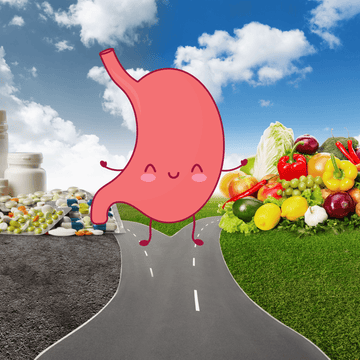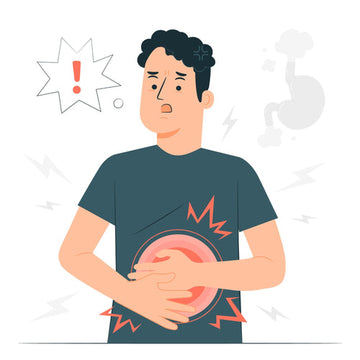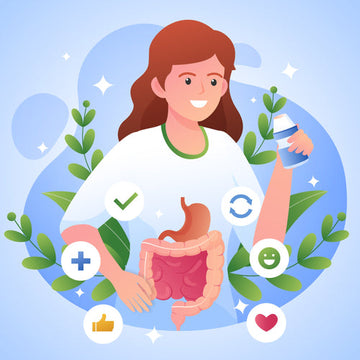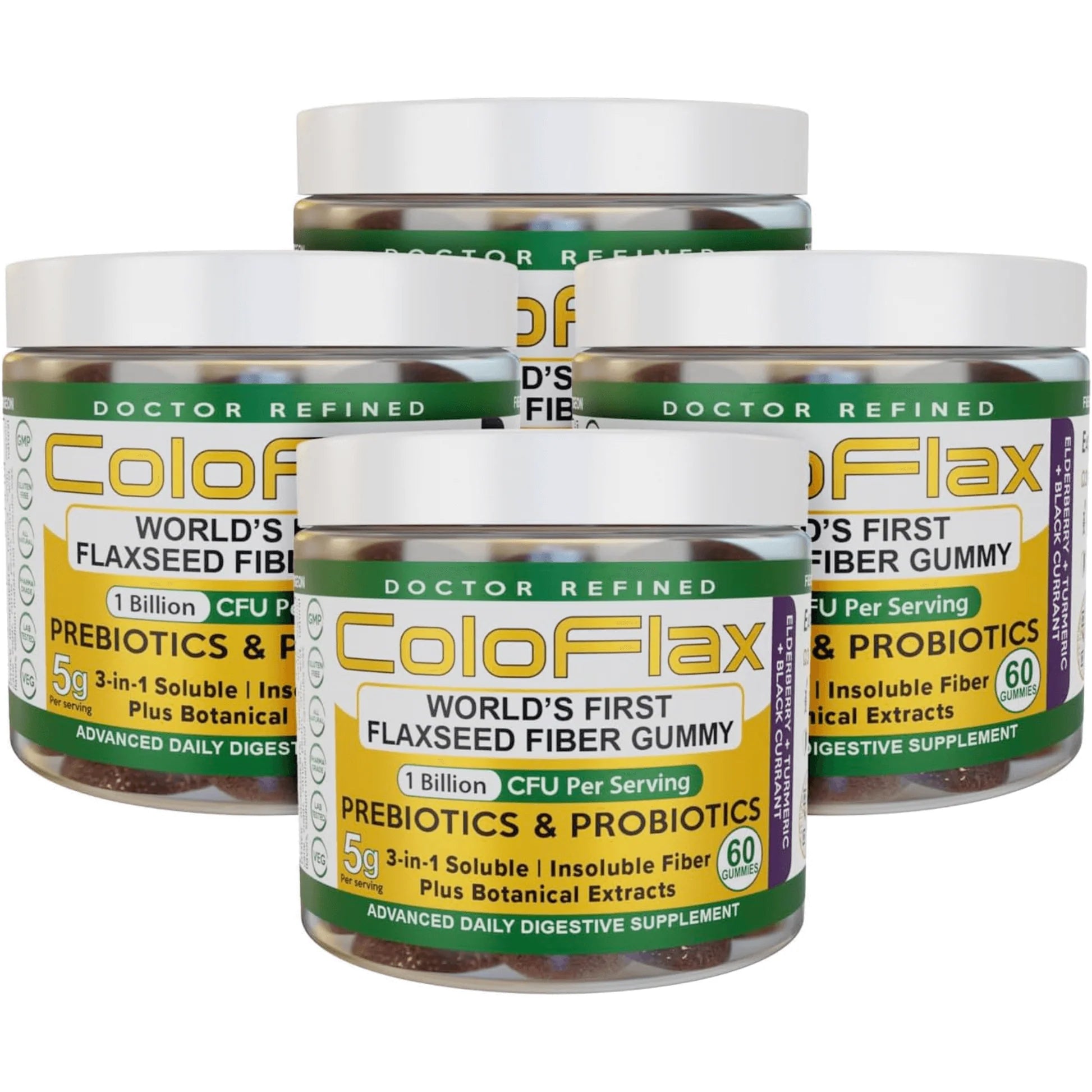Your digestive well-being is central to your overall health. Keeping everything optimal down there is a careful balance that requires a good diet (with lots of fiber), plenty of water, beneficial bacteria, and a host of micronutrients.
But that balance is delicate, and it can be thrown out of whack by many common medications and supplements. Some of them will impact your gut microbiome almost immediately; others may leave their mark after extended use. Either way, all of the following can negatively impact your gut.
Opioids
The United States is currently in the grip of an opioid epidemic. These drugs work wonders for relieving moderate to severe pain and are also used extensively in palliative care. But they are highly addictive and very dangerous. There are an estimated 3 million people in the US who either have or have had an opioid addiction, as well as many more who regularly use the drugs for short-term pain management. (1)
Clearly, opioids are problematic, and the issues extend to digestive health as well.
Opioids can cause chronic and often severe constipation. It’s one of the most common side effects associated with opioids and opiates, and it applies to all drugs in this class and across most dose ranges.
During withdrawal, opioid medications are known to cause aggressive diarrhea and flatulence, along with other digestive issues.
That’s not all. Opioids also have a direct impact on your gut microbiome. A study conducted in 2021 found that chronic use of opioid medication, “changes the gut microbiome, and manipulation of gut bacteria influences opioid-related behaviors, such as pain tolerance, withdrawal, anhedonia, and drug reward”. In other words, not only do the drugs affect changes in the gut, but these changes could worsen the user’s symptoms and potentially lead to more addictive behavior. (2)
Or course, opioids are prescribed for a reason, and for many users, cessation just isn’t an option, even if it improves their long-term digestive health. In such cases, you should chat with your physician about lifestyle and dietary changes that can combat some of the issues. These may include:
-
Eat More Fiber: Consume a balanced diet rich in both soluble and insoluble fiber, including seeds, beans, vegetables, fruits, and oats. The recommended fiber intake is 21 to 26g for women and 30 to 38g for men.(3)
- Drink More Water: Opioids can leave you with a dry mouth, so you might be thirsty more often than usual. That’s a good thing, as they have a pretty drying effect on the bowels too, and drinking plenty of water will help to keep everything moistened and moving down there.
- Being Very Careful With Laxatives: Laxatives are common among opioid users and many consider them a necessity, but it’s important not to overuse them. You may become reliant on them. You should also think about the types of laxatives you use, focusing more on ones that add volume/water to your stools, as opposed to stimulant laxatives that may be more aggressive on your digestive tract (more on laxative use below).
- Take a Supplement: It’s not always easy to increase your fiber intake, eat more fermented foods, and do everything else you need to do. If it were, you’d be doing it already. There are some quick fixes though, including ColoFlax. It’s a high-fiber gummy that contains prebiotics, probiotics, essential fatty acids, and a range of beneficial nutrients.
-
Exercise More: Opioids are often prescribed to people experiencing chronic pain, including those with mobility issues. These drugs have a sedative effect, sapping the user’s energy and making them more prone to long periods of sitting/lying down. Combined, it creates a perfect storm of immobility that only exacerbates the constipation. Remedy this issue by moving more, even if it means just stretching a little, practicing some yoga, or going for a walk.
Antibiotics
Antibiotics are a godsend. These miraculous little compounds have saved millions of lives and ensure that minor surgeries and infections are not the life-threatening issues they once were. But they don’t just kill bad bacteria and could also decimate the beneficial microbes in your gut.
Antibiotics disrupt the delicate microbiome and can even cause a disease known as Clostridioides difficile. (4)
- difficile is a type of bacteria that infects the gut. Mild cases lead to diarrhea and other intestinal distress, but in serious cases it is life threatening. The bacteria is usually kept at bay by beneficial microbes, but when antibiotics kill them off, it seizes the opportunity and takes advantage.
It’s for this reason that many nutritionists recommended taking a course of probiotics after antibiotic use. It’s also why you might notice more gastrointestinal issues following a prolonged course of these drugs.
One of the most frequently cited studies on this issue was conducted back in 2012. It looked at a total of 82 randomly controlled trials involving nearly 12,000 participants. The goal was to discover the effects of probiotic use following a course of antibiotics. It found that the probiotics were able to reduce incidences of diarrhea, thus combating one of the most common issues associated with antibiotic use.(5)
Laxatives
“Even short-term use of laxatives can lead to long-term alteration of gut microbiome and long-lasting immune changes”. Those stark words come from an analysis published in the Annals of Allergy, Asthma & Immunology in 2022. (6)
Laxatives certainly have their uses. If you’re constipated and need fast relief, they are the go-to pharmaceutical. But it’s very easy to become reliant on them, whether as a result of opioid use or because of dietary and lifestyle factors.
The more you use them, the more likely it is that your gut health will suffer.
Of course, laxatives come in many different forms and some are kinder to the gut than others. Prune juice is a prime example. It’s a natural drink that’s incredibly effective as a laxative. It works by drawing more water into the gut and thus facilitating a natural bowel movement. High-fiber pills and powders are another natural solution. They work by increasing your intake of fiber, thus bulking up your stool and allowing for an easier bowel movement.
Proton Pump Inhibitors (PPIs)
PPIs like omeprazole and lansoprazole are used for gastrointestinal reflux disease (GERD). They help to reduce the production of gastric acid, thus providing relief from heartburn and indigestion. But over the long-term, they may have a negative impact on digestive health, with one study noting that they can “contribute to dysbiosis development” and ultimately “facilitate the onset of certain GI disorders”.
Dysbiosis is defined as an imbalance in the GI tract. It occurs when there are inadequate quantities of beneficial microbes in the gut, thus preventing the microbiome from operating as effectively as it could.(7)
It’s a concern for the millions of Americans that use PPIs every day, and it’s not the only issue linked with their use. It has been suggested that long-term use of PPIs could increase the risk of kidney disease, dementia, and even community acquired pneumonia. However, these claims are not set in stone and could be influenced by other variables, including the age and health of the user.(8)
What’s more, PPIs provide many practical and positive uses, and are one of the most effective ways to combat chronic acid reflux.
Protein Powders
Skim through discussions relating to protein powders and you’ll see more than your fair share of complaints about gastrointestinal distress. Most people agree that these supplements are a great way to increase protein consumption and thus aid with muscle growth, but many complain that the drinks give them gas or make them bloated.
So, what’s happening?
Well, there could be a number of factors. Firstly, while most people can digestive dairy without issue, a small percentage of people have a lactose intolerance that produces unpleasant and uncomfortable effects following ingestion.
In other cases, it could relate to excess. You might not have any diagnosed dairy intolerances, but if you’re getting all of your protein from 3 to 4 daily shakes, your body won’t thank you.
Finally, and more worryingly, there are studies that suggest protein powders could decrease the number of certain beneficial bacteria.
One such study found that a protein shake containing just 10g of whey isolate (a dairy-based supplement) and 10g of beef hydrolysate was enough to decrease beneficial “health-promoting” bacteria.(9)
The GI issues could also be caused by additional ingredients added to make the supplement tastier or more beneficial. These drinks are often loaded with artificial sweeteners, and while the jury is still out on their health effects, it has been suggested that they could disrupt gut microbiota.
Weight Loss Aids
What’s in your weight loss supplement? Is it a stimulant designed to “speed up” the metabolism? Is it a compound that inhibits the production of hunger hormones, thus making it easier to manage your calorie intake?
Or is it a laxative and a diuretic that will rid your body of excess water and waste, causing immediate weight loss and making you think it’s effective, even though the weight will return after a day or two?
Unfortunately, many fad weight loss products fall into the final category. These supplements can wreak havoc on your digestive tract. What’s more, many of them are sold as seemingly innocent teas, with users then drinking them every day or multiple times a day. As noted above, taking a laxative every day can have some pretty dire consequences for your digestive health.
Make sure you know what you’re taking and fully understand the effects before purchasing any weight loss aids. If you’re clinically overweight and want to lose weight for health reasons, consult a physician. They can advise on the best course of action, whether that means a few simple lifestyle/dietary changes or medication designed to reduce your appetite.
Medications that Harm Your Digestive Health
If a lightbulb has just gone off in your head—so that’s why I suffer from frequent constipation!—don’t rush to stop the offending medication/supplement. If it’s a prescription medication, it was prescribed for a reason, and unless your physician says otherwise, you must continue to take it.
Also, it’s worth noting that just because you take one of the above medications doesn’t mean your gut health will suffer. The aforementioned issues don’t affect everyone. It depends on the dose and frequency, as well your physiology and an array of other variables.
For more tips on improving your gut health, check out our blog on the best gut health diet, as well as our guide to boosting your gut health in just 1 week.
References
- https://www.ncbi.nlm.nih.gov/books/NBK448203/
- https://www.ncbi.nlm.nih.gov/pmc/articles/PMC7908675/
- https://www.ncbi.nlm.nih.gov/pmc/articles/PMC6124841/
- https://www.cdc.gov/cdiff/index.html
- https://pubmed.ncbi.nlm.nih.gov/22570464/
- https://www.sciencedirect.com/science/article/abs/pii/S1081120621013417
- https://www.ncbi.nlm.nih.gov/pmc/articles/PMC6580352
- https://www.bmj.com/content/367/bmj.l6483/rr-1
- https://www.ncbi.nlm.nih.gov/pmc/articles/PMC5872755/
FAQs Unleashed: Navigating the Complex World of Medications, Foods, and Your Digestive Health!
How do opioids affect digestive health?
Opioids can cause chronic constipation and impact the gut microbiome, leading to digestive issues. During withdrawal, they can cause aggressive diarrhea and flatulence.
What are the effects of antibiotics on the gut?
Antibiotics can disrupt the gut microbiome by killing beneficial bacteria, leading to diseases like Clostridioides difficile.
Can laxatives harm the digestive system?
Yes, even short-term use of laxatives can alter the gut microbiome and cause long-lasting immune changes.
How do PPIs like omeprazole affect digestive health?
PPIs can contribute to dysbiosis development and facilitate the onset of certain gastrointestinal disorders.
Can protein powders cause gastrointestinal distress?
Yes, protein powders can cause gas or bloating and decrease the number of certain beneficial bacteria in the gut.
Are weight loss aids harmful to the digestive system?
Many weight loss aids, especially those containing laxatives and diuretics, can wreak havoc on the digestive tract.
Should I stop taking medications that harm my digestive health?
No, continue taking prescribed medications unless advised otherwise by your physician.
How can I combat constipation caused by opioids?
Increase fiber intake, drink more water, be cautious with laxatives, take supplements like ColoFlax, and exercise more.
How can I restore my gut health after taking antibiotics?
Consider taking a course of probiotics to replenish beneficial bacteria in the gut.
What natural laxatives can be kinder to the gut?
Prune juice and high-fiber pills and powders can be more gentle on the digestive system.






